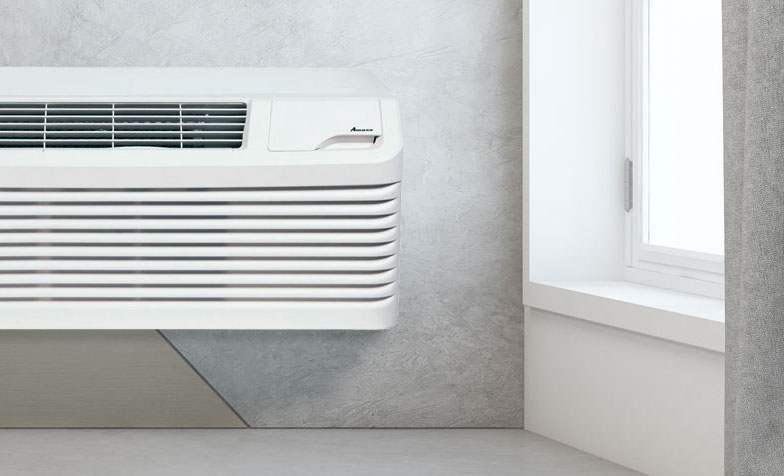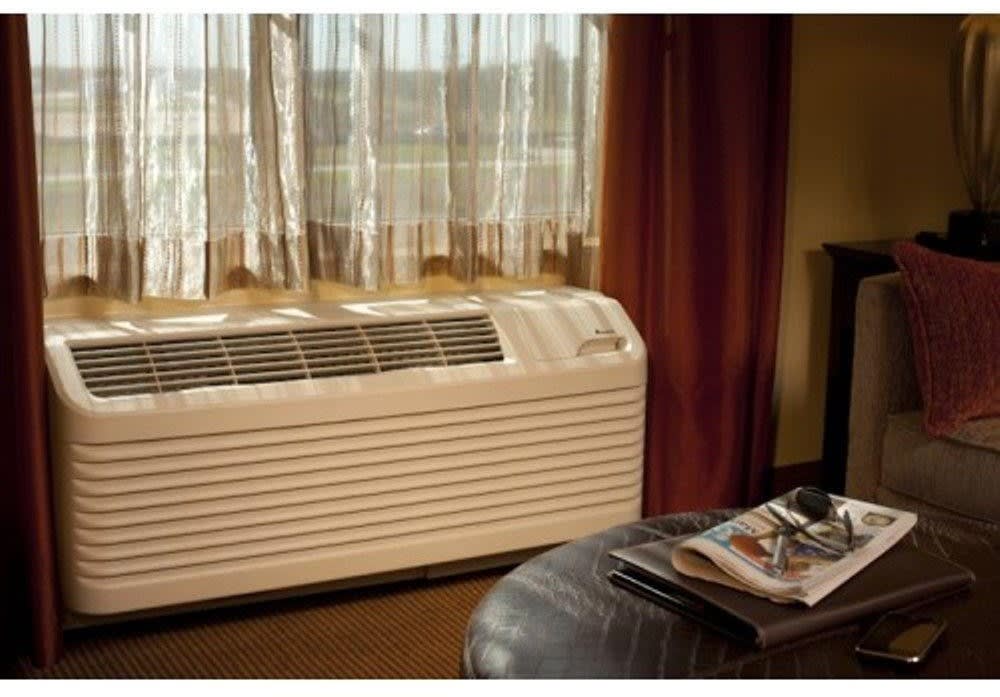

It's important to get the right size A/C unit for your space, and it is quite a simple calculation, so you can get it right.
Whether its for a hotel room, a dorm room, a room in a residence, or a studio, the size of your room requires a certain capacity of cooling / heating power. This cooling and heating capacity is measured by BTUs. Before we get into the specifics of how to calculate the BTUs needed for a room, it's important to know what BTUs are in the first place, so...
BTU is an acronym for British Thermal Unit.
Specifically, one British Thermal Unit is the calculable amount of energy needed to raise the temperature of one pound (lb) of water by a total of one degree Fahrenheit. Within the frame of air conditioning, a higher rating for BTUs means the PTAC / AC unit has more cooling power overall. Choosing the right BTU capacity for your space is fundamental: too few BTUs will leave a room uncomfortably warm, and too many can lead to excessive energy use and uneven cooling.
While often used interchangeably, these acronyms are different: BTU and BTUh refer to slightly different concepts. BTU is a unit of energy as mentioned above. BTUh, on the other hand, stands for BTUs per hour and measures the rate at which energy is used or produced. In HVAC terms, BTUh indicates how much cooling or heating power a system delivers each hour. This makes it a more precise metric for comparing air conditioners or heaters.
You get this by measuring the length and width of the room and multiplying it by 25. This will give you a rough size. Now take into consideration, if the room gets a lot of sunlight add 10% and if there is a kitchen in the room add 4000 BTU. If there will be more than 2 people in the room add 600 BTU per additional person. To get the physical size of the unit you need, measure the opening of the window or wall. The outlet should be the standard 115V or 208 / 230V. Wall AC install through a wall of a building and require a wall sleeve. PTACs (Package Terminal Air Conditioners) are self-contained heating and cooling units that are usually in hotels, apartments, condo, and hospitals. Like Wall A/Cs they require a sleeve. All PTACs require 208/230 volts or higher to work.
Here's a little chart to help calculate the necessary BTUs for your space.

If you have any questions regarding BTUs or heating and cooling units for your hospitality business, feel free to contact our team directly.

Searching for the best PTAC for your hotel or hospitality business? Here are the top of the line brands and models for your property.

Loud sounds from PTAC units can affect the guest experience. Here are 7 things to take into account to avoid noise complaints with PTACs...
Fill out the form below to request more information.

